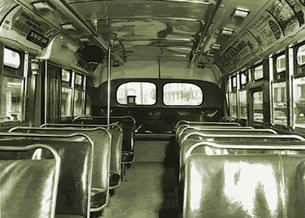Saturday, November 05, 2005
I have been invited to join and post articles at
Boycott Thieves. Our first target is Exxon, but I wrote a post for them today that I'm going to also post here, below.
First, let me say that I am flattered to have been invited to be a contributor to Boycott Thieves. I am a proponent of the boycott and, frankly, of any use of leverage that the people, collectively, can yield. My dedication is even more intense when the muscle-flexing is intended to address any kind of injustice.
In wanting to contribute to this effort, I have a smallish article on the history of the power of the boycott and then a modern-day example that is occurring even as I type this.
Surprisingly, the concept of a boycott is relatively new. The term was adopted in 1880 and named after Capt. Charles Cunningham Boycott. Capt. Boycott was a rather ruthless landlord in Ireland whose heavy-handed eviction methods caused his employees to refuse to cooperative with either Capt. Boycott or any member of his family. (Source)
Although the origin of the word "boycott" is traced to 1880, the practice of boycotting existed successfully well before the term was coined. In fact, it was a boycott that was integral in bringing about the American Revolution. In 1764, the British Sugar and Currency Acts created such economic difficulty in the American colonies that soon-to-be Americans boycotted British goods in protest. From this effort arose the slogan "no taxation without representation". (Source)Nations have also boycotted to express their displeasure at the policies and practices of other nations. In 1980, then President Jimmy Carter ordered a boycott of the 1980 summer Olympics in Moscow to protest the invasion of Afghanistan. The Soviet Union, in turn, boycotted the 1984 Los Angeles summer Olympics and compelled the participation of 14 other eastern bloc countries. (Source)
Another political boycott was undertaken by Arab countries to protest Israel and all companies who traded with Isreal. In 1973, these countries undertook a massive oil embargo which denied oil to Israel and its Western allies. The ensuing gas crisis in the United States created shortages and long lines and is widely believed to have changed the American auto industry for the worse, enabled the manufacturers of small, fuel efficient cars to gain a foothold with frustrated consumers. (Source)
Perhaps the most famous boycott in American history (and one that has been in the news du e to the recent death of Rosa Parks) was the Montgomery, Alabama bus boycott. In 1955, Rosa Parks, an African American woman, refused to give up her seat on the bus to a white man. The move was emblematic of a larger struggle against racial segregation. Civil rights leaders, among them Martin Luther King, Jr., knew that a boycott of the bus system by Montgomery african americans had the potential to bring the city to its knees financially. The key was ensuring that african americans did not break ranks and ride the bus. After nearly a year, Montgomery, Alabama relented. The Montgomery bus boycott marked the beginning of the modern American civil rights movement. (Source)
e to the recent death of Rosa Parks) was the Montgomery, Alabama bus boycott. In 1955, Rosa Parks, an African American woman, refused to give up her seat on the bus to a white man. The move was emblematic of a larger struggle against racial segregation. Civil rights leaders, among them Martin Luther King, Jr., knew that a boycott of the bus system by Montgomery african americans had the potential to bring the city to its knees financially. The key was ensuring that african americans did not break ranks and ride the bus. After nearly a year, Montgomery, Alabama relented. The Montgomery bus boycott marked the beginning of the modern American civil rights movement. (Source)
A high-level overview of the keys to a successful organized boycott are as follows, from Conscientious Consuming:
- A Clear Issue - Monroe Friedman, writing in the Journal of Social Issues, states "successful boycotts tended to be cognitively simple and emotionally appealing." This is perhaps best illustrated in the case of the boycott of canned tuna. The premise is simple and emotional: why do fishermen need to kill dolphins to make canned tuna?
- A Visible Target - Companies that sell consumer products are very sensitive to their corporate image. The negative publicity associated with a boycott (or threat of a boycott) can effect a company’s image in addition to its sales.
- Clear Alternatives to the Boycotted Product - In the Burger King case consumers had clear alternatives – McDonald’s, Wendy’s, etc. Boycott organizers are wise to make sure that the companies being boycotted know that consumers are not just boycotting them, but also supporting their competitors!
- Visibility of Violations - Because successful boycotts rely on damaging both the sales and image of the offending company, the visibility of violations is important. The more visible violations and violators are, the more public pressure can be applied.
- An Organized Effort - It is not uncommon for a boycott to take years to be successful. In many cases like-minded individuals have created nonprofit organizations to further their causes. This can make it easier to gather funding, create educational materials, receive publicity and promote their cause. Today, the Internet and this web site give consumers additional opportunities to organize.
- Why Boycotts Work - The bottom line is that companies survive on consumer dollars. The power consumers have is their dollars and the influence they exert comes from their consumer choices. If a company realizes that their conduct or actions are costing them dollars in sales or profits, they will change them.
Exxon meets all of these criteria. Today, the most visible issue is their excessive profits while consumers suffer, but one could also make the case for their environmental, social and business pratices as additional reasons to boycott. Exxon is definitively visible, and has clear alternatives from which consumers can choose. This blog is an effort to organize, to use our consumer leverage against Exxon to damage both their image and their sales.
Finally, let me relate a small story I saw this morning on CNN about a boycott that is happening rig ht now. Sponsored by the Women and Girls Foundation of Western Pennsylvania, a group of 23 girls have initiated a "girl-cott" against T-shirts being sold by popular teen retailer Abercrombie and Fitch. The girls find these T-shirts offensive and I have to say that I agree. A few slogans on the front of the shirts:
ht now. Sponsored by the Women and Girls Foundation of Western Pennsylvania, a group of 23 girls have initiated a "girl-cott" against T-shirts being sold by popular teen retailer Abercrombie and Fitch. The girls find these T-shirts offensive and I have to say that I agree. A few slogans on the front of the shirts:
- Who Needs brains when you have these?
- Blondes are adored, brunettes are ignored.
- I make you look fat.
The girls decided that they are demeaning and offensive and the girls started their "girl-cott". Their effort caught the attention of NBC's Today Show and the media onslaught began - MSNBC, CNN, and all the other major televised news outlets picked up the story. This past Friday, Abercrombie and Fitch announced that it would stop selling some of these offensive T-shirts. Chalk one up for a visible coalition of 23 principled girls and some media attention.
There's a lesson in this for each of us who look at a corporate giant like Exxon and wonder what kind of impact we can have. With the right combination of pressure and exposure, we can accomplish more than we might even imagine.
posted by RenaRF at 6:18 PM

















1 Comments:
Herbizide, Insektizide und andere thomas sabo 2010 Schädlingsbekämpfung Products.Keep Floh-und Zeckenmittel Produkte nur thomas sabo online shop zur äußerlichen Anwendung, auch von Ihrem Hund zu erreichen soll über die ohrringe creolen Exposition oder Verschlucken zu vermeiden. Diese thomas sabo uhren Produkte enthalten giftige Chemikalien, die sehr schädlich für Ihr thomas sabo armketten Haustier kann, wenn angewandt improperly.Ingestion von Maus und Ratte Gifte können lebensbedrohlich sein.
Post a Comment
<< Home